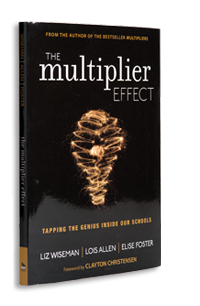OFF THE SHELF

Andrew Gilbert (geology '92),"Courageous Pedagogy: Enacting Critical Science Education," science education, critical theory, Information Age Publishing.
Randy L. Joyner (certificate of graduate studies '88, Ed.D. vocational-technical education '89), et al.,"Writing the Winning Thesis or Dissertation: A Step-By-Step Guide," third edition, education, graduates studies, Corwin.
Eric Melniczek (M.Ed. educational leadership and policy studies '02),"Transition to the Real World," transitioning to the workforce, CreateSpace.
Gregg Clemmer (biology '72),"A Turn for Home," historical fiction, novel, Hearthside Publishing Company.
Jim Crowgey (electrical engineering '60),"One More Chance," contemporary, novel, Trafford Publishing.
Cliff "C.R." Sturgill (management '92),"Dreams from the Heart," relationships, short stories, CreateSpace.
Johnathan Edmonds (computer engineering '00), "Army Service Pals Search for Sergeant Mike," "Navy Service Pals Travel Around the World," "Air Force Service Pals in the Amazing Airshow," and "Marine Service Pals in the Honor Relay," picture books about military vehicles, Mascot Books.
Ross Orr Jr. (biology '49), et al,"Whispers of Age" and"Whispers at Twilight," poetry collections, self-published.
Bernard F. Dukore , University Distinguished Professor Emeritus, Department of Theatre and Cinema,"Bernard Shaw: Slaves of Duty and Tricks of the Governing Class," literary criticism, ELT Press.
Joan Gordon, retired associate director of program development, Division of Continuing Education,"Gra Im Thu! I Love You!," historical fiction, Lulu Press.

Early in her career, Elise Foster (industrial and systems engineering '99, M.S. '00) was content as an engineer managing high-profile global projects to solve complicated problems. It wasn't long, though, before she realized she wanted to solve different types of problems. Today, Foster is a leadership coach who enables business executives to recognize—and then realize—their potential.
Foster is the co-author of "The Multiplier Effect: Tapping the Genius Inside Our Schools," published by Corwin. The excerpt below is reprinted with the author's permission:
Becoming a Multiplier often starts with becoming less of a Diminisher. And this often means doing less: less talking, less responding, less convincing, and less rescuing of others who need to struggle and learn for themselves. By doing less, we can become more of a Multiplier.
Doing less to achieve more is one of many examples where counterintuition is more instructive than intuition. When no one else is speaking up, the compelling inclination is to jump in and fill the void. We become a greater Multiplier when we learn to hold back and allow silence to draw in others. When we feel the need to be big, let it be a signal that we need to be small and dispense our views in small but intense doses. And when our instincts tell us to help, we might need to help less.
Becoming a Multiplier requires us to understand how our most noble intentions can have a diminishing effect, sometimes deeply so. Reinhold Niebuhr, the American theologian, said,"All human sin seems so much worse in its consequences than in its intentions." Likewise, while leaders view their own leadership through the lens of their good intentions, their staff perceive that same behavior only by its consequences—the consequences on them and the students they serve.
By learning to do less and challenge more, we can transform from being the Accidental Diminisher to the Intentional Multiplier.
Produced by University Relations